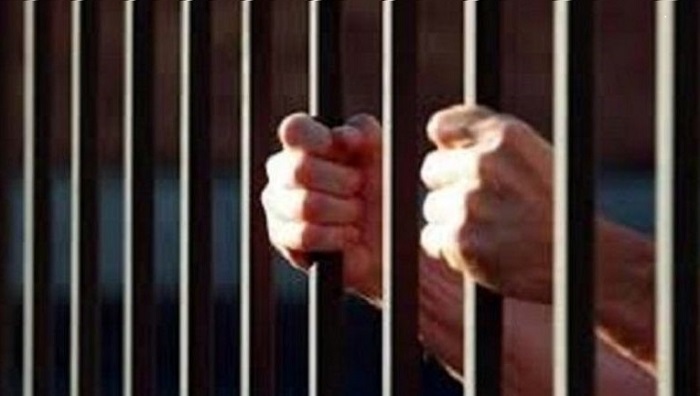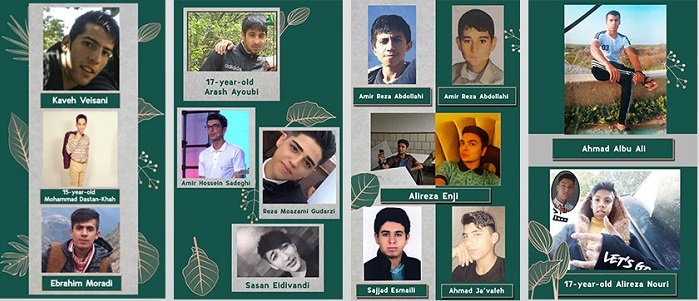
Coronavirus, or COVID-19, has occurred in a number of the regime’s prisons and is being largely ignored by prison officials. Among those affected by the outbreaks are Fashafouieh, Gohardasht, Evin, Karaj Markazi, Central Karaj, Ghezel-Hesar, Urmia, Shiban-Ahvaz, and Kashan prisons.
Reports from the MEK network inside Iran indicate that fatal outbreaks of Coronavirus, or COVID-19, have occurred in a number of the regime’s prisons and are being largely ignored by prison officials. Among those affected by the outbreaks are Fashafouieh, Gohardasht, Evin, Karaj Markazi, Central Karaj, Ghezel-Hesar, Urmia, Shiban-Ahvaz, and Kashan prisons.
Denial of Treatment
On Thursday, February 27th, a 44-year-old inmate incarcerated in Fashafouyeh Prison in Tehran with Coronavirus-like symptoms died after being denied a transfer to a hospital for medical care, according to reports from the MEK network.
Iranian prisons lack basic medical facilities and supplies and are notoriously overcrowded and unsanitary. Some prisons do not provide soap or detergent to inmates, and hospital transfers are routinely denied, even for terminal patients. Inmates with highly contagious diseases are kept in the general population, and outbreaks of tuberculosis and other diseases are common.
Some reports indicate that prison officials are ignoring protocol for suspected cases of COVID-19, refusing prisoners’ demands to isolate patients with Coronavirus symptoms. Inmates in Khorramabad and Sanandaj Prisons have launched hunger strikes in protest of this decision.

Reports from Urmia Prison indicate that inmates have been deprived of masks and disinfectant. In Gohardasht Prison, there are reports of a widespread outbreak of COVID-19 and a public health disaster among the inmate population.
Reports from Urmia Prison indicate that inmates have been deprived of masks and disinfectant. In Gohardasht Prison, there are reports of a widespread outbreak of COVID-19 and a public health disaster among the inmate population. Prison officials have banned inmates from meeting with their families, leaving their loved ones to wonder and worry about their health and safety.
Lack of Transparency
The Iranian regime has yet to reveal the true number of COVID-19 cases and fatalities in the country. The government waited until February 19th, a full three weeks after the outbreak in Qom was first detected, to announce its first case of the deadly virus, and it is still vastly undercounting the number of cases and fatalities. Of the sixty countries reporting infections, Iran is the only one with a significant number of infections that refuses to acknowledge any serious or critical cases, despite reporting new deaths on a near-daily basis. It is also the country with the highest fatality rate (>8%), which is several times more than the worldwide average (2-3%). This disparity points to a troubling lack of transparency with implications for both public health and human rights.
A Need for International Intervention
On February 28th, Mrs. Maryam Rajavi, President-Elect of the National Council of Resistance of Iran (NCRI), tweeted: “The outbreak of the Coronavirus in Evin and Gohardasht prisons is a serious danger and I urge the UN High Commissioner for Human Rights and the Human Rights Council to immediately intervene to save the lives of prisoners and prevent a major humanitarian catastrophe.”
The theatrical instructions by the mullahs’ chief executioner, Ebrahim Rai’si, to secure prisons and prisoners from the #Coronavirus is a hoax to cover up this disaster #COVID19
— Maryam Rajavi (@Maryam_Rajavi) February 26, 2020
The World Health Organization (WHO) also needs to take action to prevent the further spread of COVID-19 within Iran’s prisons and to ensure that appropriate measures are being taken to treat active cases and follow protocol for preventing the spread of the virus. International human rights groups have a role to play as well in pushing governments and the United Nations to take action to secure the health and well-being of Iranian prisoners.
It is worth adding that many of those who are incarcerated in Iranian prisons are there for expressing their political beliefs. More than 12,000 protesters were arrested for participating in the November Uprisings last year. Another 1,500 were killed by the regime’s security forces during the protests. In Iran, it is illegal to belong to an opposition political party, to join a labor union, to peacefully protest, to violate the religious dress code (for women), to go to a mixed-gender exercise class, to drink alcohol, to change religions (for Muslims), or to say anything negative about the Supreme Leader.

More than 12,000 protesters were arrested for participating in the November Uprisings last year. Another 1,500 were killed by the regime’s security forces during the protests. In Iran, it is illegal to belong to an opposition political party, to join a labor union, to peacefully protest, to violate the religious dress code (for women), to go to a mixed-gender exercise class, to drink alcohol, to change religions (for Muslims), or to say anything negative about the Supreme Leader.
These are many of the people who are dying inside Iran’s prisons. To be clear: no one deserves the fate that befalls those who enter the regime’s prisons, but many who do so enter because they dared to exercise the freedoms most people take for granted. Now they all need our help.
